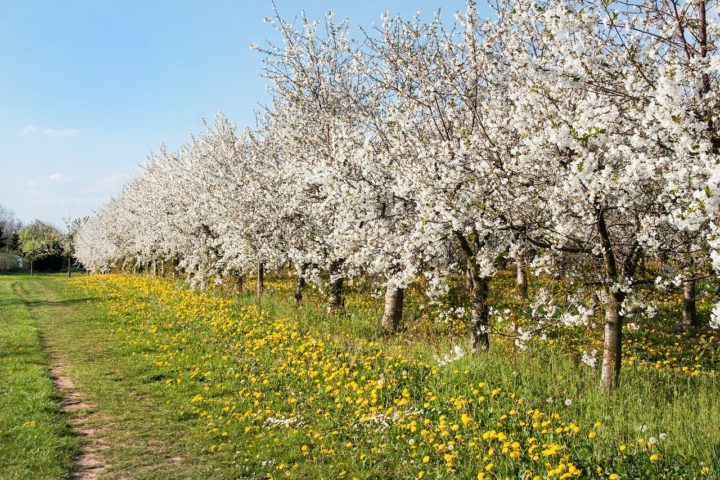Bean, strawberry and apple crops all depend on bees and other pollinating insects. Reading research has identified which species do which jobs, their economic worth, and how to protect them – shaping national policy in the process.
Bees, hoverflies and other pollinating insects that we rely on for our fruit and vegetable crops are declining in numbers due to climate change and habitat loss. Research by Dr Mike Garratt and colleagues has helped discover exactly which pollinators do these important jobs for us, their economic worth, and how farmers can best support them.
The Reading research pinpointed which species pollinate important UK crops – apples, oilseed rape, field beans and strawberries – and the effect on crop yields if there are too few insects to pollinate them. Furthermore, they have developed and applied a method to measure the economic value of pollination and identified what farmers can do to help pollinators – such as better management of hedgerows and field margins and planting wildlife-friendly flowers.
The team’s work has closed knowledge gaps, shaping DEFRA’s National Pollinator Strategy (NPS) for England right from the outset.
Companies that supply 70% of the UK’s top fruit market have got on board too. They have made changes to protect and enhance pollinator habitats, thanks to Garratt’s evidence that better pollination boosts crop yields and quality. And by helping to develop regular assessments of crop growers and talking about their work at Science Days, the team have also supported leading UK food retailer Waitrose to meet its sustainability targets.
Find out more
Reading Bee Team (project website)
National Pollinator Strategy: Implementation Plan 2018-2021 (DEFRA, 2018)
View the full impact case study on the REF 2021 website: Evidence-based policy and practice change for improved UK crop pollination.

